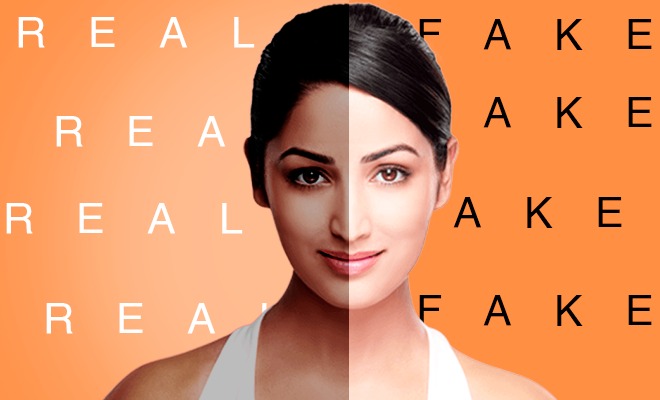By Sharanya Venkataraghavan
Fair and Lovely has been a large part of every Indian’s childhood. Who doesn’t know of those ads where a dark-skinned woman with low self-esteem is handed a tube of Fair and Lovely which instantly lightens her skin, empowering her to achieve every dream of hers? And which Indian can’t sing that tune synonymous with transformation and goal fulfilment? In light of the backlash as part of the Black Lives Matter Movement, Unilever has taken the decision to remove all mentions of “lightening”, “whitening” and “fairness” from products and change the name of Fair and Lovely in a move to be more inclusive and diverse. Similarly, Johnson and Johnson had taken the decision to stop the sale of any lightening products that it sold
History
“Fair and Lovely” introduced in India as early as 1975, is a name that echoes the attitude of Indians. It has been one of India’s most successful cosmetic brand with an 80% market share in the lightening cream market. Since then, the fairness cream market has grown with big players like Dabur India, Emami, ITC Limited and Procter and Gamble selling their own versions of fairness creams with the promises of whitening, lightening, reversing blemish and making everyone “beautiful”.
The fairness cream market had largely been targeted at women till in 2005, Emami asked Indian men why they’re still using women’s fairness cream when they can have one of their own. And thus, Fair and Handsome was launched. Fair and Handsome while part of the larger ambit of fairness creams, is the leader in the Male Fairness Cream sector. Emami, which has 80% market share in the male segment follows largely the same problematic pattern of sales that Fair and Lovely and other fairness creams do, using famous celebrities and showing fair skin as the solution to all problems and even its name has the same connotations that Fair and Lovely does, just reversed for gender. This shows how while skewed in favour of women, the problem of celebrating fair skin isn’t limited by gender.
Advertising
Across brands, fairness creams found under various names sold to various segments carry largely one problematic message – “Fair is better”. Before and after pictures of people, celebrity endorsements where these now famous celebrities explain how fair skin has given them all the success they needed, a fantasy of what your life could be after you get the fair skin you always wanted-finding a partner, getting the job, a sudden boost in self-esteem are the most common tropes followed by these advertisements. Ads have slowly become more and more subtle while delivering the message, now these creams being the confidence boost you need to fulfil the goal, rather than the only way for a dark-skinned person to achieve these forms of success.
In February 2020, India’s Ministry of Health and Family Welfare finalised an amendment which will ban advertisements promoting fairness creams and products promoting anti-ageing remedies – with potential jail time for offenders. This was a move to push against fairness cream ads that demean dark skin and promote colourism in India. While these products may not be on television screens anymore, they were still being sold in the market. One wonders if the decision of Unilever to remove all fairness products, is in part compulsion that choice, thanks to this ban on advertising fairness creams.
The Larger Problem
In a few days, weeks or months, we’ll live in a world where Fair and Lovely isn’t called Fair and Lovely anymore, Johnson and Johnson doesn’t sell fairness products anymore and we won’t see women and men become successful because of using a fairness cream on our televisions anymore. In a country where matrimonial ads still want “fair brides”, ask girls not to be out in the sun for too long and dark-skinned women are constantly receiving unsolicited home remedies on how to brighten your skin, will the obsession with fair skin magically die out with less exposure to such toxic messages and products?
India’s obsession with fairness long outdates the introduction of fairness creams into Indian markets. While these various brands have exploited this for purely monetary reasons, this obsession was and is the reason that fairness creams sell. There continue to be people who aspire to be fairer, who feel inadequate in their own skin because of this narrative. And it is our personal failure as a society, our own fault that people across ages feel like their self-worth of acceptability increases just by being “fairer”.
These superficial changes by big brand names are no solution, but are definitely a conversation starter. “Fair and Lovely” might not available in a tube at your nearby store, but found in abundance in the mindset of the people around you. It’s up to make use of this to highlight the inherent colourism of our culture, have that difficult conversation about how we’re just as much a part of propagating the ideal of fair skin and its dominance. Turns out, what we were after was a “fairer” world and not one of equality. So, make that conscious decision and use this as that wake-up call to check your biases.
Art work by Ayush Kalra. Check him out at www.ayushkalra.com
Sharanya Venkataraghavan
Sharanya Venkataraghavan is currently pursuing a degree in Law and Business Administration at Symbiosis Law School, Pune. She aspires to make the law more accessible to all. A feminist at heart, she believes that for change, one must be the change. When not attempting to overthrow the patriarchy, Sharanya enjoys reading, (badly) singing along to K-Pop music and binging shows and movies.


